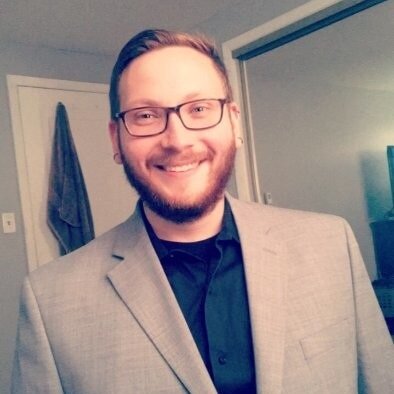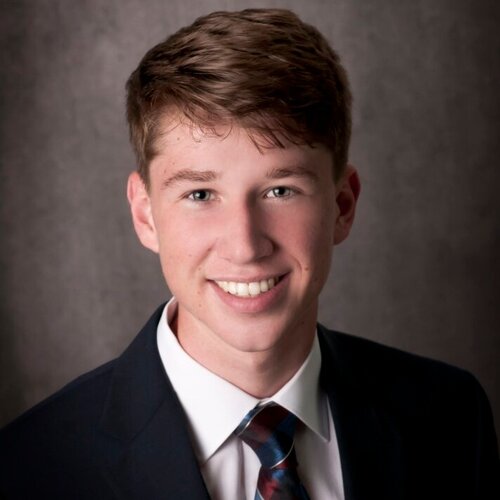Jared Mejstrik and Harrison Martindale, Associates at the Maverick Venture Fund
Q: The Fund is structured as a progression of courses, and in your first semester in the program, you read Venture Deals—a great resource I always recommend to people interested in startup finance—and observe how the process works. Even with that background knowledge, was there anything you found surprising or challenging as you began to take on a more active role in the Fund?
JM: The first semester is all bookwork, along with sitting in on some entrepreneur pitches, but as soon as we started the second semester, we began the deal-making phase right away. For me, the biggest challenge was figuring out how to network and get in front of promising startups, especially during a global pandemic. The social aspect of it is hard to teach in a book – it’s more of a trial-by-fire type of learning.
HM: There were many learning curves as we took a more active role in the fund because we were trying to apply all of the lessons from the book in a real-world context. The textbook can’t replicate interacting with an entrepreneur or coming up with questions to ask following a pitch, so those took some getting used to.
Q: As part of the fund program, students are supervised by local venture capitalists. What do those relationships look like, and how have they helped you develop the skill sets necessary to make investment recommendations and manage investments?
JM: Tom Chapman is our instructor and fearless leader. He sits in on pitches, guides our investment decision process, and provides connections to better serve our portfolio companies. Tom does a great job of taking a back seat and letting us take the lead on developing relationships with startups, keeping up with portfolio companies, and weighing the pros and cons of potential investments. Rather than tell us whether he thinks we should invest, he asks critical questions and raises issues that we need to research. With the answers and solutions to those questions, we become confident with our decision to fund a company or not.
HM: Yes, we are very lucky to have Tom Chapman, who has had a vast array of experience on both sides of venture capital, raising, and funding. He often makes us think for ourselves and plays devil’s advocate with every opportunity that comes along. He also guides us through the difficult tasks VCs run into, like governance and due diligence.
Q: Are there any particular pitches or pitch strategies that you’ve really liked (or didn’t like, for that matter)?
HM: Well, we have been fortunate to have had many good pitches so far. I wouldn’t say there is a particular pitch strategy that interests me the most. Generally, I just like to see an entrepreneur that is confident, understands his or her market and problem, and articulates why their venture is a worthy investment.
JM: I enjoy listening to pitches in which the entrepreneur proactively discusses how they believe our fund would be a good strategic fit in the success of their company. Venture capital is much less of a passive investment than a dynamic and interdependent relationship between the portfolio company and us. Entrepreneurs that understand & seek that kind of relationship that from the beginning typically start out in better standing than those that are just in need of capital.
Q: How do you normally get connected with the companies that become a part of your process — introductions, cold calls, alumni, or some other way?
HM: Typically, we reach out to local accelerators like The Startup Collaborative and find entrepreneurs who are interested in pitching and funding. We also get online applications from students and alumni who hear about us from other analysts in the fund or from our social media.
JM: We do run some advertising and have received submissions to our website, but in general, we just try to stay close to the ground in the local startup community & alumni community. Omaha has a lot of hidden talent in the startup space, and we try to stay as connected as possible. This enables us to achieve our ultimate goal of bringing value and capital to student & alumni-led startups.
Q: Is there any specific advice you would give to founder teams who are looking to raise capital from funds that are similar to the Maverick Venture Fund?
JM: Many entrepreneurs shy away from getting in touch with us because they don’t necessarily need capital right away or are just working out a concept. Even in that early stage, we’d love to talk to them about what they are working on so we can provide feedback on the project and help work out a timeline for launching the product. We usually begin funding once the product launches, but that does not mean that we do not want to be in contact before they reach this stage.
HM: Don’t be afraid to reach out even if your idea isn’t complete or you don’t have customers yet. We are there to help you along the way and propel you to the next step. We are always looking to hear great ideas.

Jared is in his final semester pursuing a BS in Business Administration, with concentrations in Investment Science & Real Estate. In addition to the Maverick Venture Fund, he is currently working as a sales assistant at Morgan Stanley.

Harrison Martindale is a sophomore majoring in Financial Markets and Investment Science & Portfolio Management.

